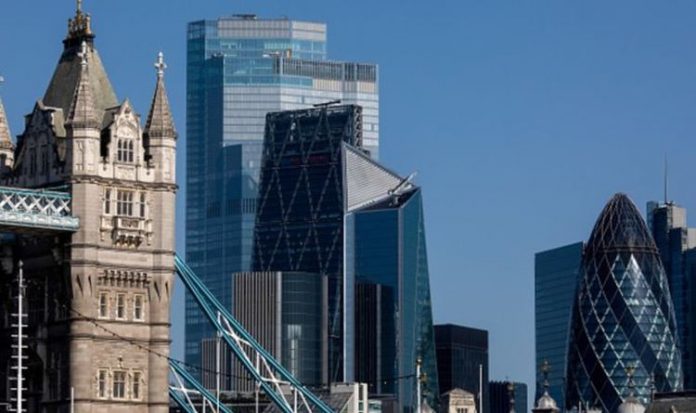Britain has officially entered into the largest recession on record after figures showed the pandemic sent the economy plunging by 20.4 percent between April and June. BBC Economic Editor Faisal Islam warned the economic hit caused by the coronavirus pandemic will cost the UK some “permanent losses”. He told BBC Radio 4’s Today programme: “Lights were switched off in the economy to protect our public health in April in a massive scale, shutting down a fraction of the economy, not a fraction of a percentage of the economy.
“Not all of those lights will go back on.
“And there are still some questions about the extent to which the Government will want to pump prime the economy over the autumn.
“Because 8.7 percent doesn’t get you back, it gets you back just over a third of what we lost.
“And some of those losses will be permanent and some of those losses will reflect permanent changes to the economy that we live in.”
READ MORE: Recession meaning: What is a recession, what does a recession mean?
The Office for National Statistics (ONS) confirmed the UK’s nosedive into recession for the first time since the financial crisis after the record-breaking contraction in the second quarter, which follows a 2.2 percent fall in the previous three months.
A recession is defined as two successive quarters of decline in gross domestic product (GDP).
But monthly figures showed the economy bounced back by a slightly better-than-expected 8.7 percent in June, following upwardly revised growth of 2.4 percent in May, as lockdown restrictions eased.
The ONS said the economy is still a long way off from recovering the record falls seen in March and April after tumbling into “the largest recession on record”.
Jonathan Athow, deputy national statistician at the ONS, said: “The recession brought on by the coronavirus pandemic has led to the biggest fall in quarterly GDP on record.
“The economy began to bounce back in June, with shops reopening, factories beginning to ramp up production and house-building continuing to recover.
“Despite this, GDP in June still remains a sixth below its level in February, before the virus struck.
“Overall, productivity saw its largest-ever fall in the second quarter. Hospitality was worst hit, with productivity in that industry falling by three-quarters in recent months.”
The grim second quarter figures showed the UK suffered the biggest economic hit from the pandemic in western Europe, even beating Spain’s eye-watering 18.5 percent drop.
DON’T MISS:
UK recession: UK enters recession for first time in 11 years [ANALYSIS]
FTSE 100 LIVE: UK in first recession since devastating 2008 crash [LIVE BLOG]
What is a recession? What does a recession mean for the UK? [INSIGHT]
The ONS said the UK economy is now 22.1 percent smaller than it was at the end of 2019 and 17.2 percent below levels seen in February, despite two months of growth since the nadir of the recession in April when the UK was in full lockdown.
Samuel Tombs at Pantheon Macroeconomics said: “The UK economy has underperformed its peers to an extraordinary degree.
“The drop in GDP in the second quarter was bigger than reported to date by any EU member state, and double the fall recorded in the United States.
“The underperformance can be attributed partly to the economy’s greater reliance on consumer services spending and the high level of labour market participation by working parents, many of whom have left work to look after children.”







